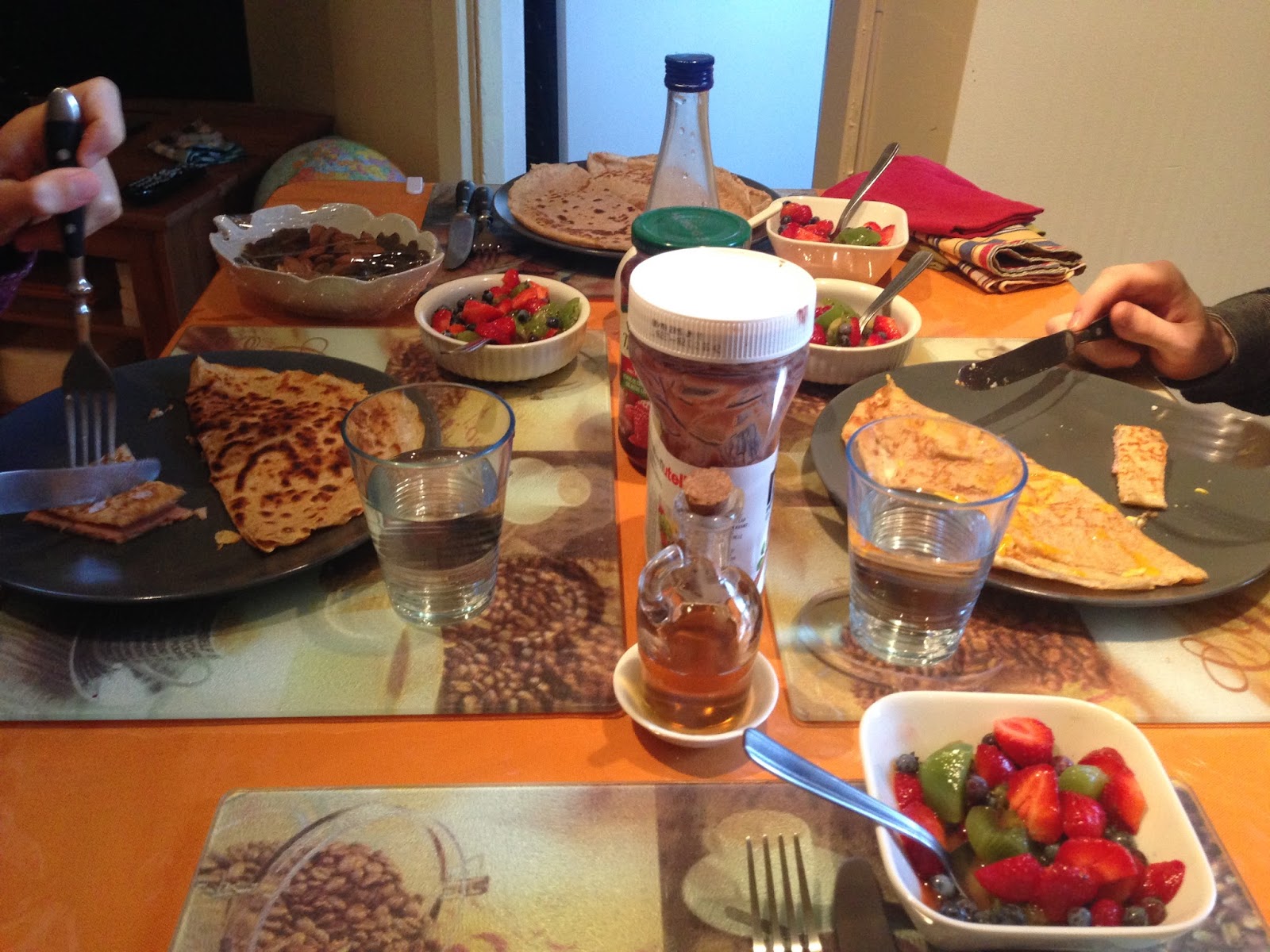 |
| 最近撮影した写真。人の家の窓。 |
この間、FSLで職業を表す名詞を習いました!
(そう、私はビギナークラス♪爆 ドイツ人達はインターミディエイト。)
フランスとケベックでの職業の言い方の違いも教えてもらったので今回はそれを記事にしたいと思います〜。
全てのフランス語の名詞は男性形 (masculin) と女性形 (féminin) に分けられます。
もちろん職業を表す名詞にも男性形と女性形が存在します。
パン屋さん
le boulanger (m.)
la boulangère (f.)
薬剤師
le pharmacien (m.)
la pharmacienne (f.)
マルシェなどで働く人
l'épicier(m.)
l'épicière (f.)
もともとの単語が最後 "e" で終わっている単語は男性形も女性形も同じ形になります。
写真家
le photographe (m.)
la photographe (f.)
花屋さん
le fleuriste (m.)
la fleuriste (f.)
など。
上記の職業は、辞書で引くと"nmf"(男性・女性形の名詞)と出てきます。
しかし、職業によっては男性形"nm"しかないものがあるんです!
例えば、"professeur"(高校教師、教授), "avocat"(弁護士)という名詞には本来女性形が存在しません。
なので、たとえ対象の人物が女性であっても
Elle est professeur. (彼女は教授です。)
という使い方をします。
もしくは、
femme avocat (女弁護士)
のように "femme"はつけますが名詞そのものは変化させません。
・・・というのがスタンダードフレンチのルールです。
(***下に追記があります)
ケベックでは上記の名詞は
la professeure
l'avocate
というように、語尾と冠詞を女性形に変化させてもオーケーです。
(モントリオールの語学学校ではスタンダードフレンチと合わせてこちら呼び方も教えられました。)
男性形しか存在しない職業は、だいたいが医者などのハイステータスなものらしいです。
日本でも女性のお医者さんのことを女医といいますね。男医とは言わないのに。
ルームメイト(ドイツ人)が「(職業に関する)今のフランス語は時代遅れ。近い将来、フランスでもケベックのように"la professure" が使われる日がくると思う」と言っていました。
ちなみにドイツ語には男性・女性に加え、中性名詞というのがあるそうです。
じゃあ二つの性しかないフランス語はあなたたちにとってさぞかし簡単だろう・・・と思ったら
ドイツ語とフランス語では性が真逆の名詞もあるから余計にこんがらがってしまうそうです。
Aya
***追記***:フランスでも l'avocateが使われるそうですが、辞書でavocatと調べると男性形を用いることが多いとありました。
Alexaさんのフランス語学習YouTubeチャンネル、"learn french with alexa"は英語でフランス語を教えてくれるので、英語がわかる人にはいいかも。







